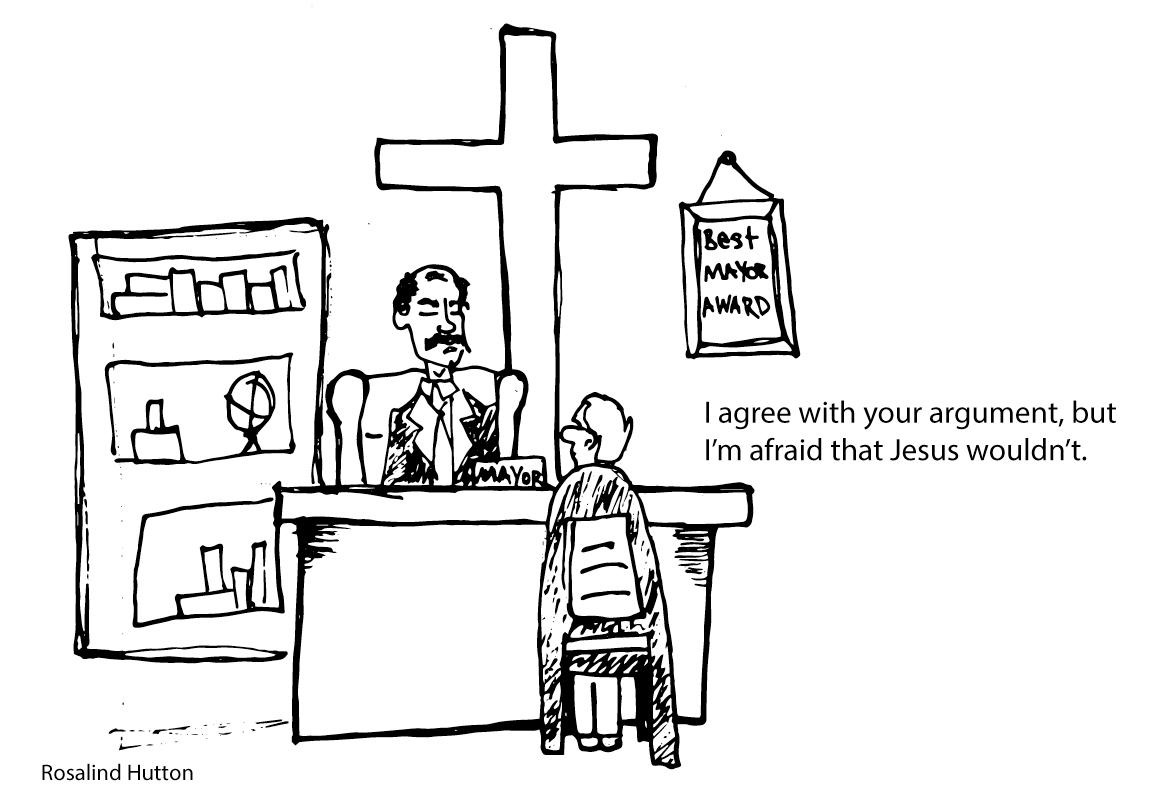I have often struggled with separating my religion and my politics. On one hand, my religion is what is supposed to guide me through the difficult choices in my life and, even further, dictate what I view as moral. However, on the other, politics is not a personal endeavor.
My political views are what I view the ideal America as, and the problem I face is that my ideal America is secular. Where, then, do I draw the line between my religion informing my politics, and my politics informing my religion?
Politics and religion have long made their bed together, in every corner of the globe. From the concept of Divinely ordained rulers to blatant theocratic governance, a society’s religion has always helped to structure its politics.
However, the advent of secularism from the 18th century onward has led us to an era of institutional separation between church and state, and it is that very century which gave us the United States of America.
The U.S. Constitution contains no mention of any favored religion, and in fact, the only time religion is mentioned at all is to express the right of freedom of religion within the U.S.
To that effect, the American Civil Liberties Union refers to the Lemon Test, established as legal precedent in the 1971 Supreme Court case Lemon v. Kurtzman, as a barometer of sorts to determine whether a policy meets the standard set by the First Amendment. To meet the Lemon Test, a policy must have a non-religious purpose, not end up promoting or favoring any set of religious beliefs and not overly involve the government with religion.
I could continue to list off the legal precedents which state America is, by constitutional mandate, a secular nation, but I am writing an article, not a book. The Lemon Test serves as excellent springboard to what I believe should be the way we tackle policy in debate as Americans. If I am arguing a policy point, I should be able to give you data to solidify my position, and therein lies the problem with religion in secular politics.
Let us discuss an example of this. Pew Research Center’s polling shows 56 percent of Americans who see religion as “very important” also strongly oppose same-sex marriage. Seeing as Pew also reports 70.6 percent of Americans say they are Christian, I will tackle this from the Christian perspective.
Traditional Christian orthodox holds homosexuality as a sin and heterosexual marriage as a holy union. Therefore, Christians are supposed to oppose homosexuality, based on moral grounds. If you are not Christian, you have no basis to believe homosexuality is immoral, other than maybe the influence of Christian morality on American culture. If anything, the West’s tendency to worship Greco-Roman culture would lead someone to conclude homosexuality is perfectly normal.
If I were to advocate for a national law banning same-sex marriage, it would be reasonable for one to ask why. If my argument is, “It is immoral to indulge in homosexuality,” my argument would be, in my humble opinion, un-American.
My law would be favoring specific religions’ interpretation of sexual morality, and therefore, it would break the Lemon Test’s interpretation of the First Amendment. I would be advocating for a policy which is predicated on my personal morality alone, disregarding the moral beliefs of millions of Americans. Therefore, I would be holding millions accountable to a law they feel is illegitimate and unjust. I would be regulating their lives with no objective reason.
I understand many Christians might feel they are just preventing others from ruining their lives with what they perceive is sin, but those many need to understand their interpretation of objective morality is based off a religious faith, which many in our country do not have. In fact, Daniel Cox from FiveThirtyEight reports one study found 26 percent of Americans do not believe in God at all.
I cannot prove God exists to anyone, and no one can prove to me God does not exist. A secular nation’s law should be predicated on evidence which all can agree on and see proof of in this world, which the Divine does not fall under.
Because of this, I am disheartened to see the continued courting of religion and politics in America. Disagree on economics all you want, but it is antithetical to American values to hold one to another’s religious convictions. If we truly want to live up to, “With liberty and justice for all,” we cannot regulate “all” with a subjective view of “justice.”























































































